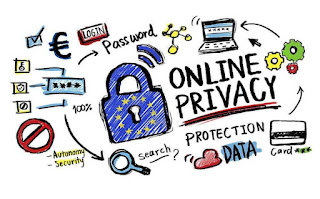I got my first iPod when I was thirteen. My parents' rule was that there was no technology until you were a teenager, and suddenly I was hooked. I downloaded every app possible. My friends and I would Snapchat from the moment we woke up until the second our heads hit the pillow, and nothing has changed since. Social media has changed the way the world works. Just looking at TikTok, for example, young girls have started to look older and older over the years because they see these girls online and idolize them. I think about the first time I saw a beauty blogger on YouTube at 13, it was Bethany Mota.
She was talking about how she could never leave the house without makeup on, and all of a sudden - neither could I. I let her influence me into doing the same thing. This movement has influenced the way that brands influence us as well; influencer advertising has been in uproar since YouTube and TikTok hit the market. This idea that people on the internet could sway you one way or another based on their opinions has taken control of our society.
Technology Before Today
I remember the first time my grandmother got an iPhone for Christmas. My siblings and I were so excited for her to open it - we thought she understood. We thought that my sixty-five-year-old grandmother understood how which Apple product you had determined your social status. My grandma didn’t even know how to turn it on. When watching the 64-65 NY World's Fair FUTURAMA Ride Video, I can see why. Back then, they pictured the colonization of the desert, whereas now we have fourteen-year-olds learning different TikTok dances and online challenges that have people ending up in the hospital. Technology has changed how our world functions.
Although technology has changed our world in many positive ways, it has also been detrimental in many ways as well. People look to technology to solve every problem. From students using ChatGPT to sending robots to the moon - there is technology everywhere. As we can see in the Mad World Remix of Moby Video (Are You Lost In The World Like Me), the future depicts a certain amount of reliance on technology. The people in the video cannot even walk down the street without their eyes glued to their phones, and neither can I. After watching this video, the class depicted it as an unnecessarily pessimistic view of the future, but was it?The suicide rates in teenagers and young adults have been rising every year because people in that age rely heavily on the approval of others; and in this day and age, it is just as easy to deny approval as it is to grant it. According to CBS, from 2007 through 2021- suicide rates for Americans between the ages of 10 to 24 rose by 62 percent. I believe this is a direct result of social media. It has opened the doors to cyberbullying and simply showing people what they are missing out on. Social media has made it easy for people to paint this idea of a perfect life, in which there are absolutely no problems. Our generation has looked to these influencers for guidance, to show us what life is like in a perfect world. But, it is so easy to not post the negative, and we viewers do not see that side of things.
Even just in my time writing this blog post, it was about one thousand words of my own thoughts, nothing else. It barely took any time researching or transferring tabs on my laptop, but yet I went on my phone twelve times. Not because I had notifications or needed to text someone, but simply because my attention span is that short. I am no different than any student in my generation. I am a good student, I do well in classes and I study for tests, yet I am still unable to write a blog post that entirely consists of my own thoughts without looking at my phone twelve times. If that does not show you what technology has done to our generation, I do not know what will.
Sometimes I think about our world outside of technology. I think about how the rates of anxiety and depression among teens would be affected. I know it sounds silly, but as a teenager seeing people online living lives that appear more fun or having fewer struggles than you - it takes a toll on your mental health. Or even the idea of people posting embarrassing pictures or videos of you online. These harmless posts may seem like nothing, but they mean something to someone.
In the 1960s, the dream was to have an underwater society or even have humans step foot on Mars, but in 2023, our biggest goal is to have a trending TikTok video. What do you think that says about how our society has evolved with technology?




.jpeg)




.jpeg)













